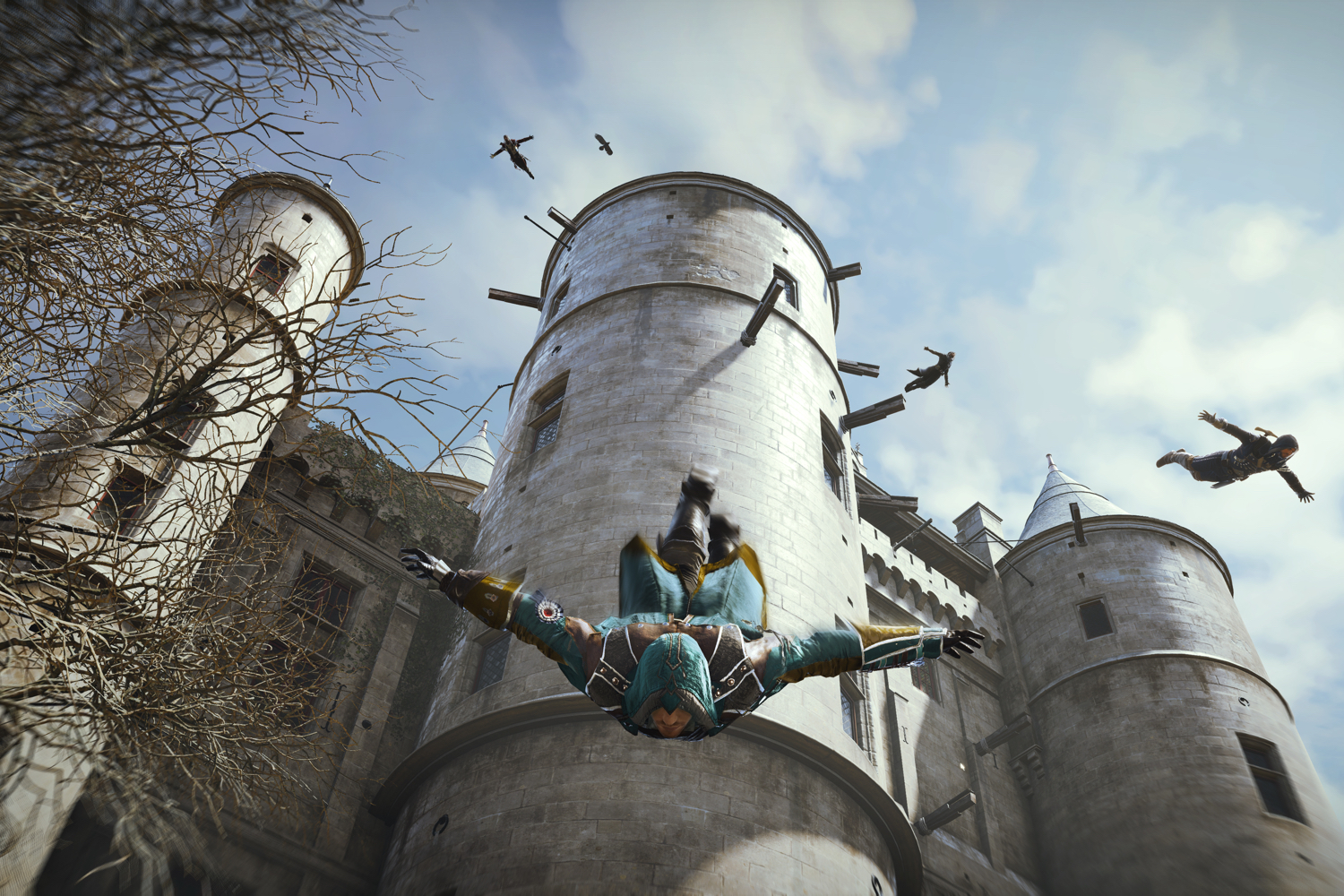
You’ll have to make do without an Assassin’s Creed game this year.
Ubisoft explained in a brief dispatch on Feb. 11 that it’s “stepping back and re-examining” the franchise. The message, from no one in particular at the multinational publisher, attempts to soften the blow by calling 2016 “an exciting time for Assassin’s Creed.” I gather that’s mostly to do with the Michael Fassbender tie-in film due later this year.
It’s a bold move given a potential film-related sales boost, but probably a smart one. 2014’s Assassin’s Creed Unity was enough of a mess (and I don’t just mean the technical launch gremlins or gender-related public relations brouhaha) that when Assassin’s Creed Syndicate rolled around last year, all I could muster was enough interest to play for a dozen hours. I still love the idea of a time-hopping, parkour-angled stealth series informed by warring secret factions and a deep, history-minded framework, but the annualized installments were definitely starting to creak.
Did you know the Assassin’s Creed series has (or I should say had) a planned ending? “We have an idea of where the end is,” Assassin’s Creed IV game director Ashraf Ismail told Eurogamer in 2013. When I asked Unity director Alexandre Amancio about that a year later, he said more or less the opposite: That the franchise had long legs, and I think there may even have been a Doctor Who comparison. (Incidentally another perennial franchise that’s desperately in need of — and getting — a good, long break.)
10. Prune
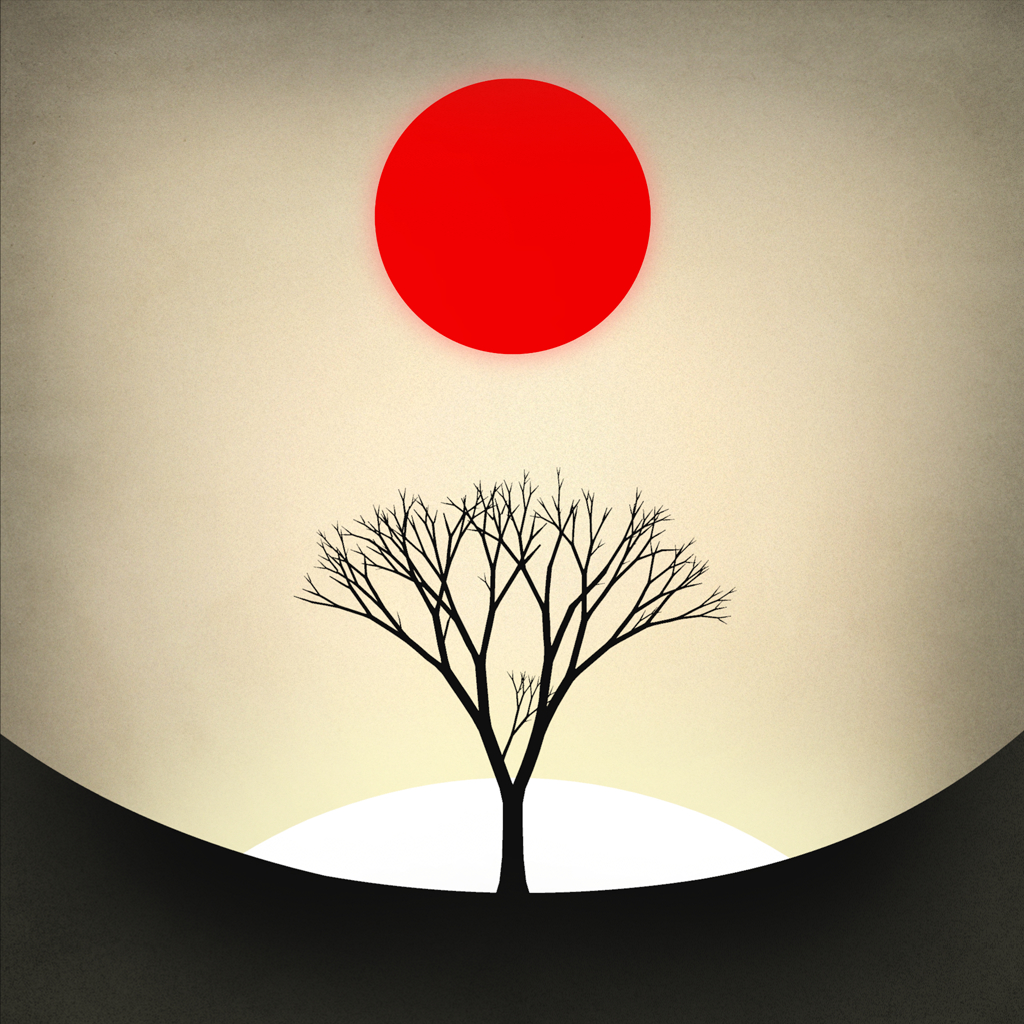
As its name suggests, Prune is a game about removing things to nurture other things, where you swipe your finger to sever restrictive limbs and free others to grow. But it’s also about basking in a minimalist garden of forking paths as you work out the spatial logistics of coaxing a tree to blossom. It’s both an arboricultural exercise and a meditation–on light, darkness, color, sound and perhaps most of all, the things we’re forced to leave behind.
[iOS, Android, Windows Phone, PC]
9. Rise of the Tomb Raider
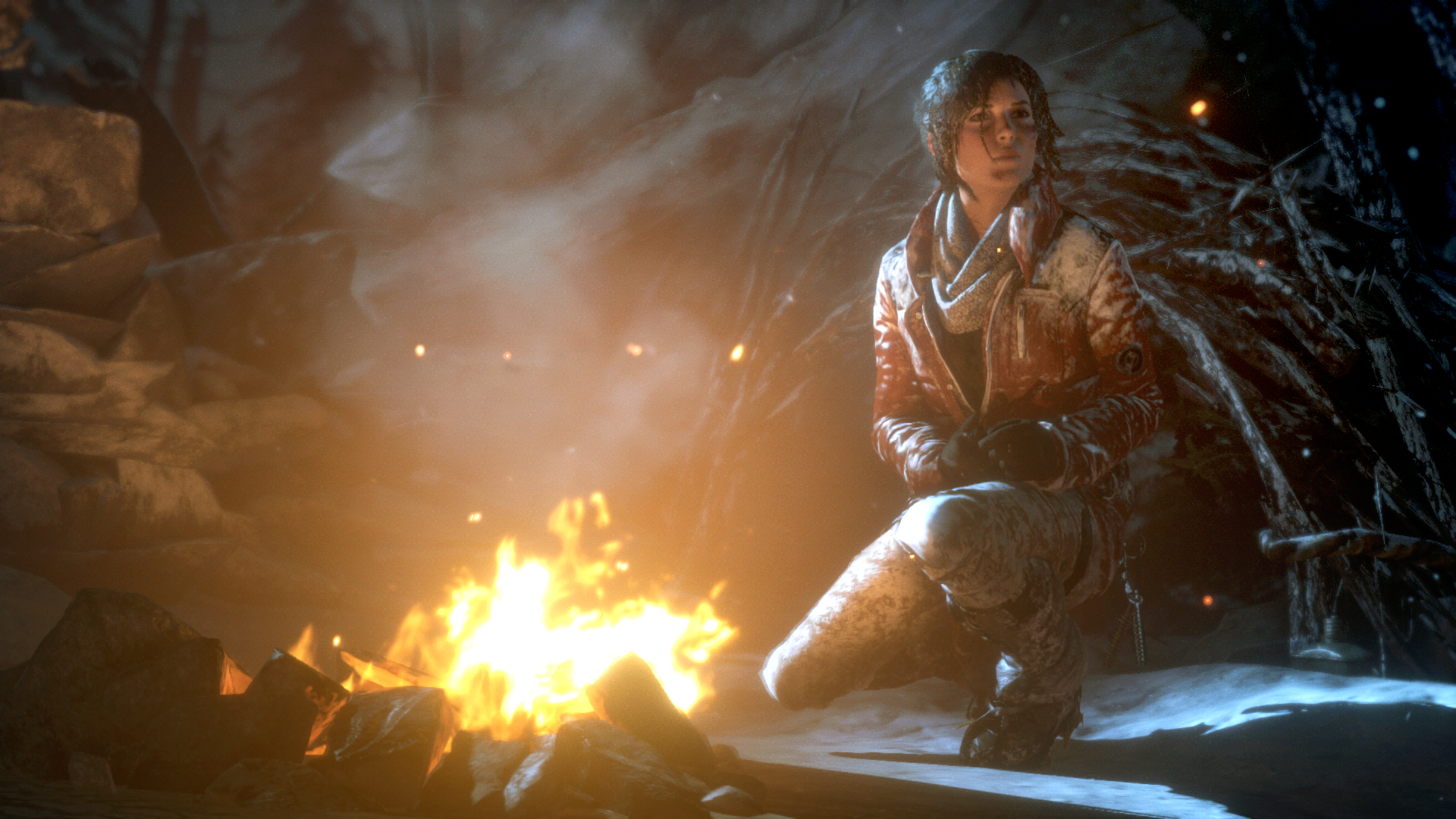
The antithesis of Sony’s linear, shoot-heavy Uncharted games, Rise of the Tomb Raider moves at comparably ruminative speeds, embedding you in its bleakly beautiful and broad wintry landscapes with only your wits and scant weapons. It’s both a study in how to craft a relatable protagonist whose every fight is tooth and nail, and the best puzzle-exploration-survivalism odyssey since Crystal Dynamics’ 2013 series relaunch.
[Xbox One, Xbox 360]
8. Metal Gear Solid V: The Phantom Pain
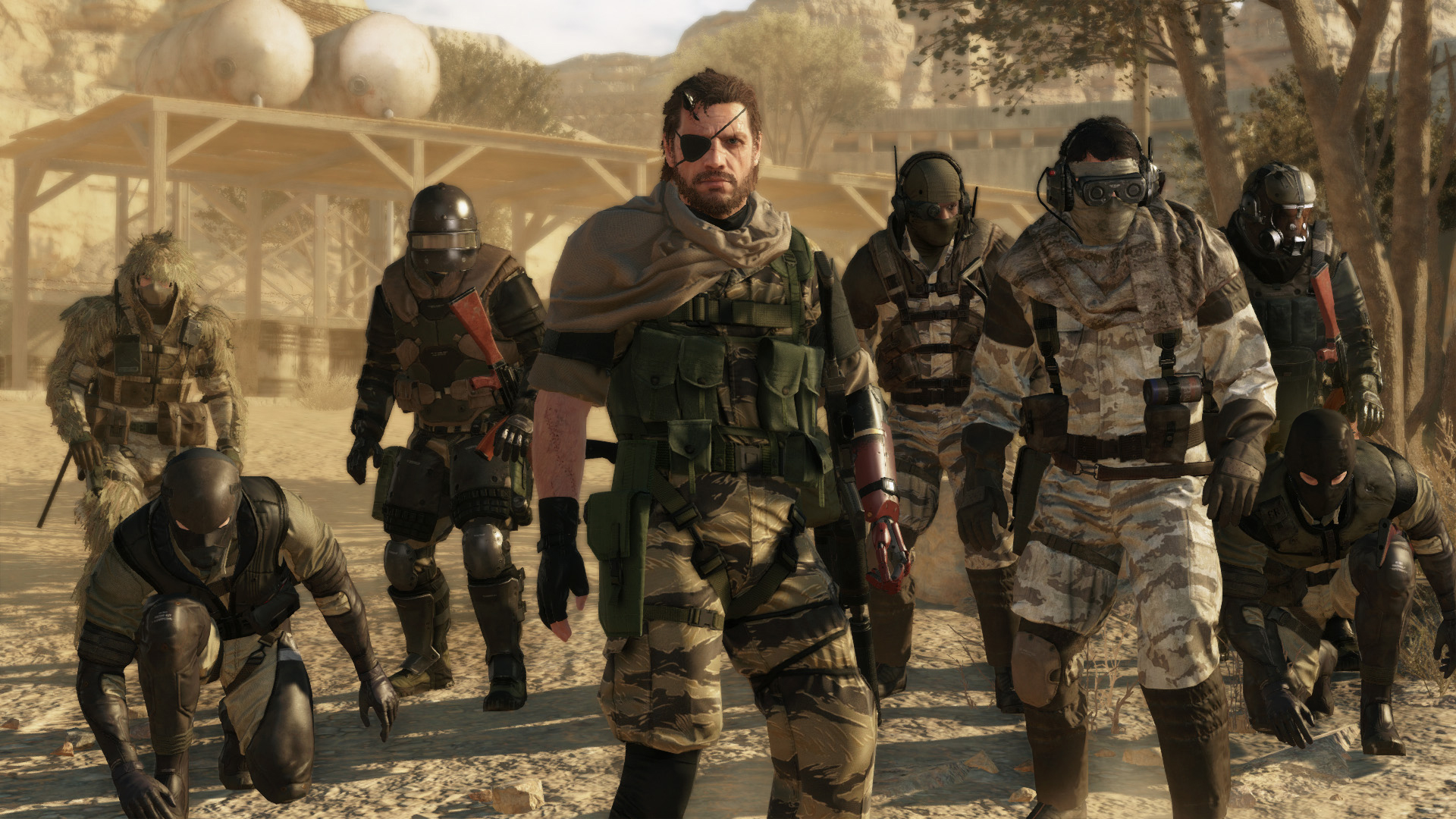
Metal Gear Solid creator Hideo Kojima’s series swan song turns out to be his finest work yet, a tactical stealth simulation wrapped in a colossal resource management puzzle inside a love letter to theatrical inscrutability. It’s a clandestine feast of open-world prowling, a tactical toybox staged in sprawling bulwarks bristling with eerily sentient enemies–the new pinnacle of stealth gaming, and a triumphant final act from one of our luminaries.
[PC, PlayStation 4, Xbox One]
7. Her Story
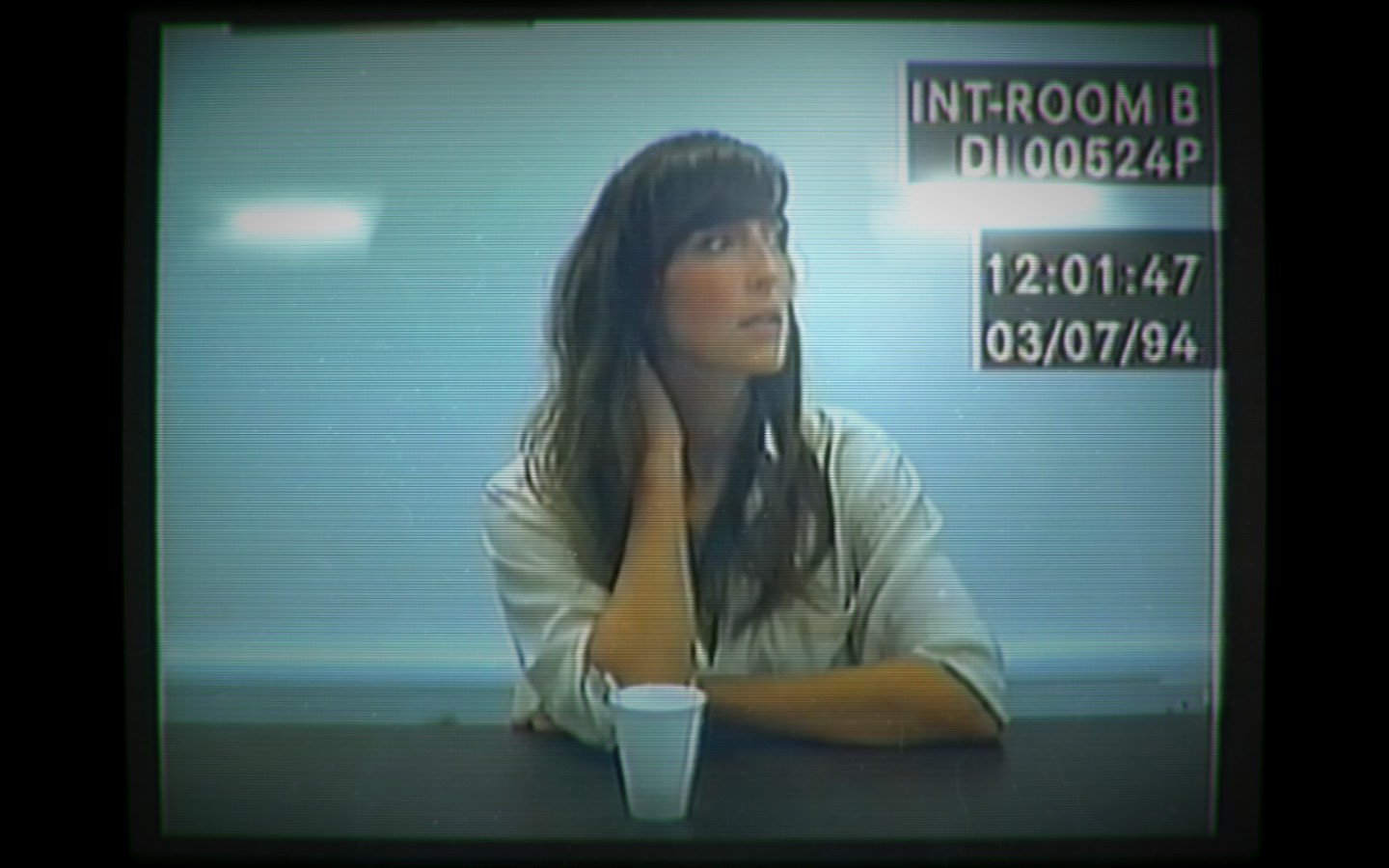
A whodunit subjectively pieced together by scanning full-motion video clips that require you to spill real-world ink turns out to be a superlative example of how to rivet employing the sparest techniques. It’s complexity from simplicity, a mesmerizing, hybrid investigative-voyeuristic experience where you observe a woman interviewed by detectives about a 1994 murder, unraveling (or deepening) the mystery by lighting on terms or phrases used to ply a vast but fragmented database, trying to puzzle out what happened — and why.
[iOS, Mac, PC]
6. The Witcher 3: Wild Hunt
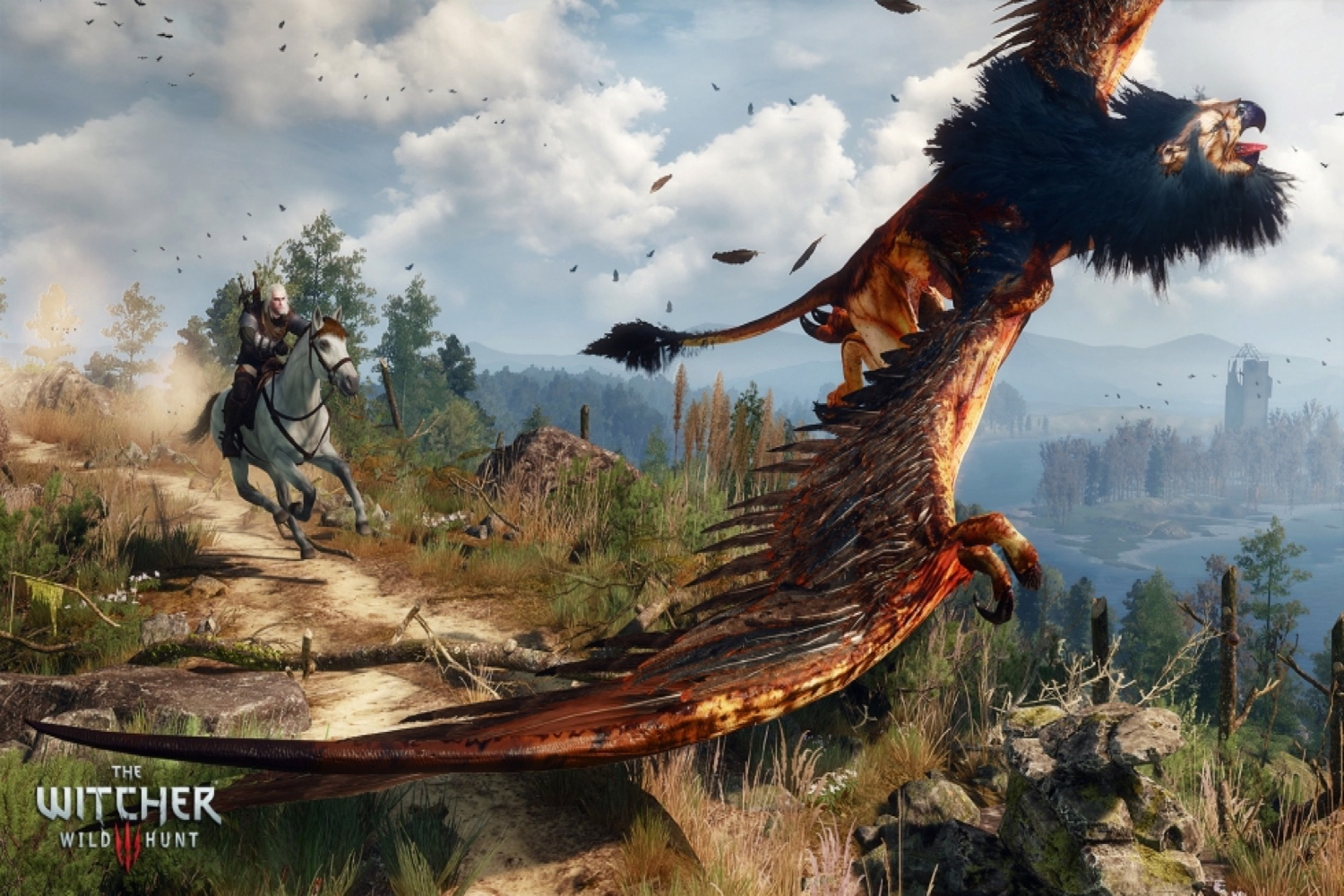
One way of talking about studio CD Projekt Red’s open-world magnum opus The Witcher 3: Wild Hunt might be “the game that made me like Fallout 4 less.” It’s that near roleplaying perfection, assuming you like slow-burn fantasy games about potion-chugging mutants and ethical courses of action with inexorably bleak outcomes. The Witcher 3 is to the rest of the video game roleplaying genre as George R.R. Martin to J.R.R. Tolkien.
[PC, PlayStation 4, Xbox One]
5. Super Mario Maker
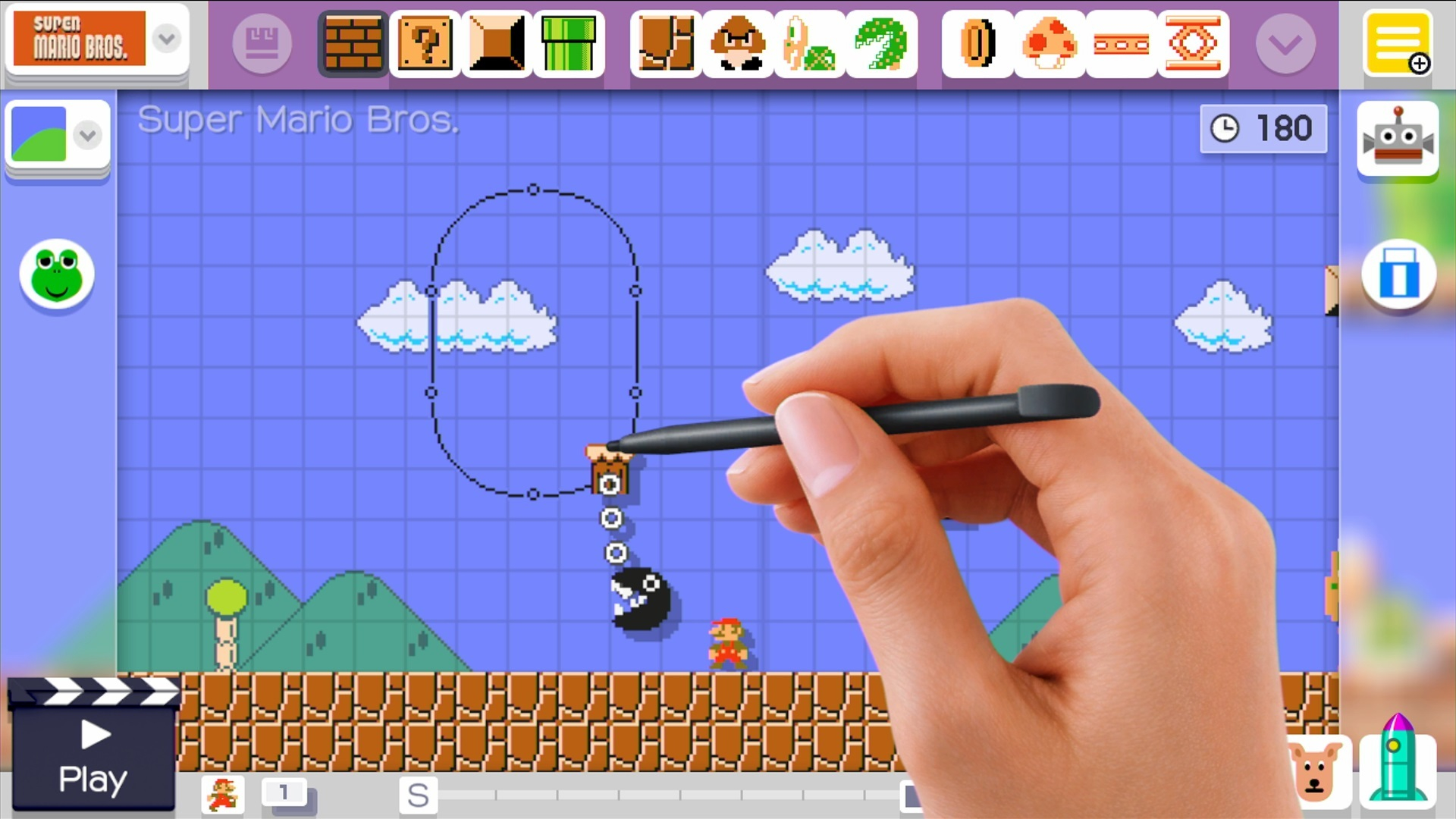
It’s Super Mario Bros., Super Mario Bros. 3, Super Mario World and New Super Mario Bros. U rolled into a rich but accessible toolbox, letting players create and share whatever bizarre level ideas they can dream up. Why it took Nintendo this long to release a Super Mario level maker is anyone’s guess, but if one game sells the two-screen idea of the Wii U–the stylus is essential here–it’s this one.
[Wii U]
4. Ryan North’s To Be or Not to Be
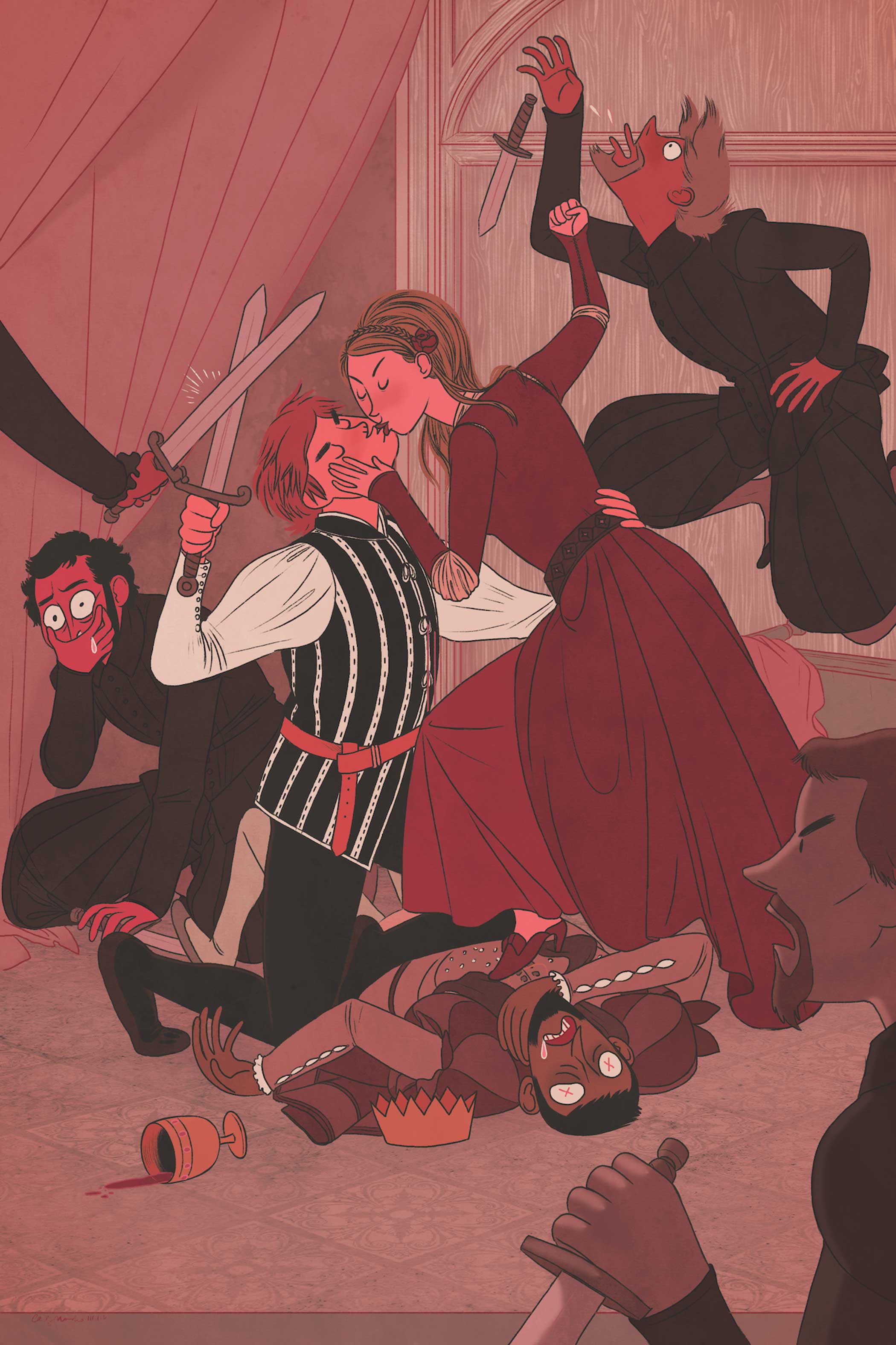
Ryan North’s To Be or Not to Be is the digi-fied version of a crowdfunded 768 page choose-your-own-adventure that came out a few years ago in book form. Studio Tin Man Games’ digital version is the quirkiest, funniest, most insightful retelling of Shakespeare’s Hamlet I’ve experienced in any medium. Multiply by a gazillion possible narrative routes, cultural takedowns and goofy cameos by everything from ghostly aliens to undead presidents. Like Inkle Studios’ 80 Days last year, it’s the smartest bit of interactive fiction you’ll flick through all year.
[PC, Android, iOS]
3. Batman: Arkham Knight
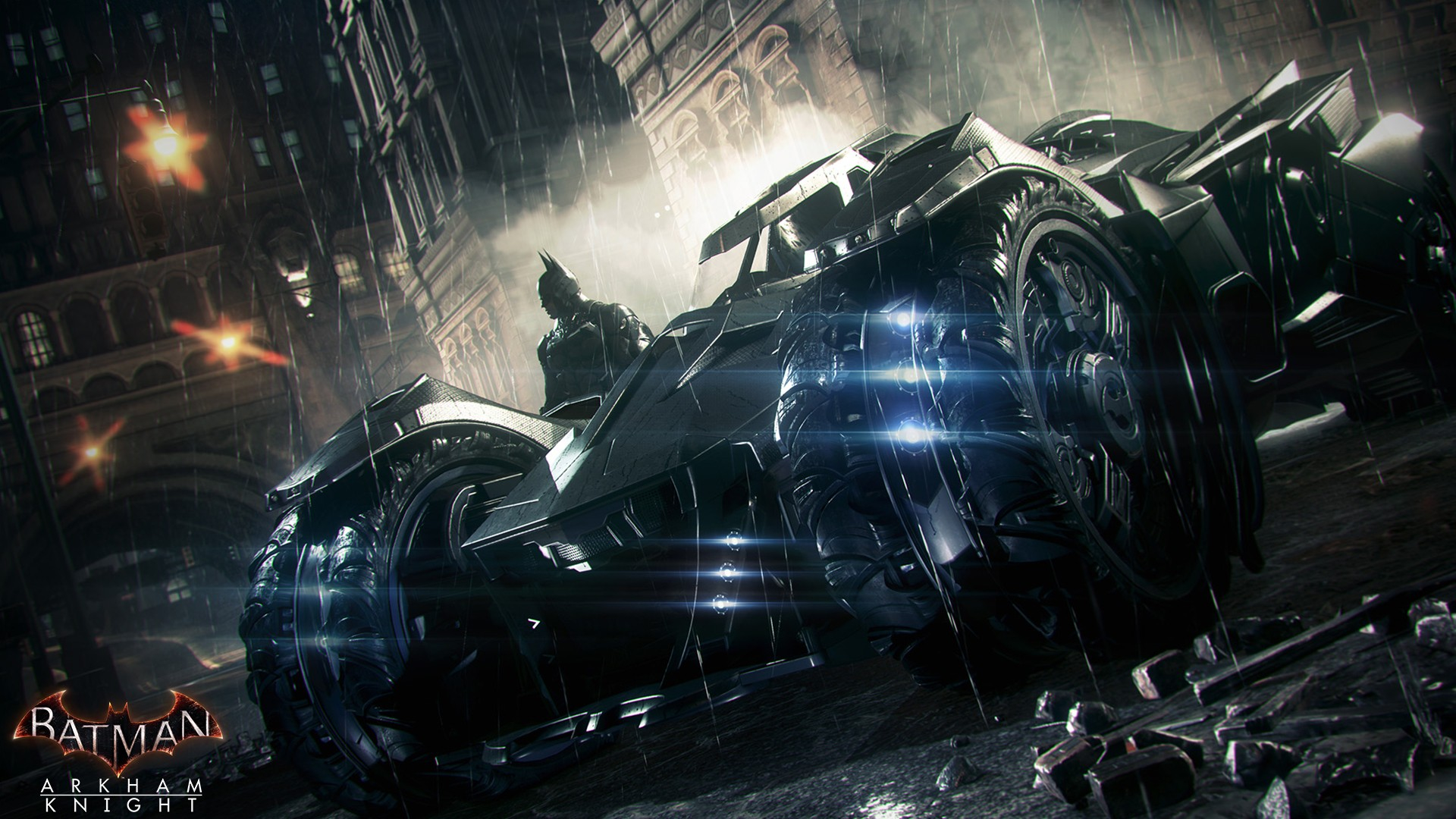
Rocksteady reversed the curse of the shoddy superhero tie-in when it surprised with Batman: Arkham Asylum six years ago. Arkham Knight is everything the company’s learned since cranked to 11 with a side of 12. And it’s not just a fitting fireworks finale that banks on past design glories rubbed in next-gen gloss: the studio took big risks by turning Arkham Knight into a buddy game, pairing Batman with the Batmobile, managing to make its inclusion both essential and exhilarating.
[PC, PlayStation 4, Xbox One]
2. Undertale
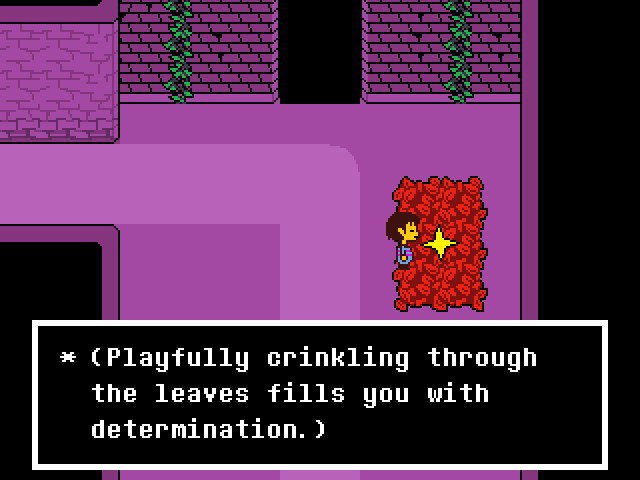
In the guise of a Japanese roleplaying game, Undertale is an investigation of what may really be happening when we play so-called Japanese roleplaying games. It’s a fantasy odyssey that deconstructs itself as you wander. It invites replays, winking at us like a smarter, subtler version of a “Let’s Play” YouTuber shouting insults at the screen. And it’s relentlessly, fastidiously obsessed with helping us see the consequences of the choices so often flippantly made, and the implicit violence we’re wont to do in the name of freedom.
[PC]
1. Splatoon
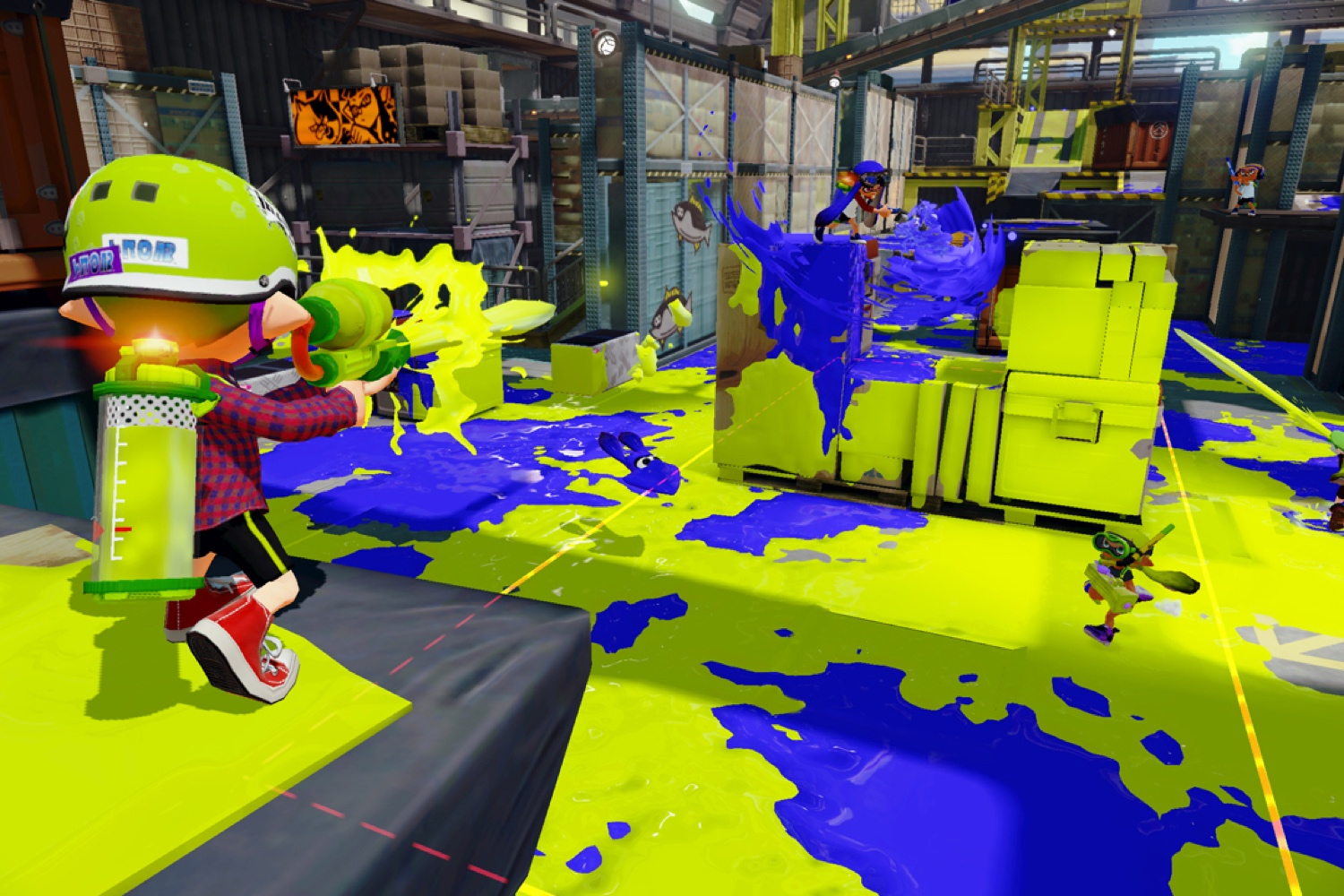
Nintendo’s best idea in years, Splatoon sees two squads of four players battling in skatepark-inspired arenas, outfitted with ink-spewing gadgetry and one imperative: to paint as much of their team’s color on the ground as possible before time runs out. There’s nothing else quite like it, nor the cathartic dopamine jolt to be had when you sail up a paint-smeared quarter pipe, an Inkzooka at the ready, leap over the edge, take aim with your weapon, and reduce a startled opponent to goo.
[Wii U]
Whatever will we play instead? There’s Ubisoft’s The Division and Far Cry Primal, of course, both out in the next 30 days. And you can wade through our top 50 most anticipated games list here for a glimpse of what we knew about at the time we published, bearing in mind that we’re likely missing some of 2016’s most interesting game-related ideas, which often appear without warning or ceremony.
More Must-Reads From TIME
- The 100 Most Influential People of 2024
- How Far Trump Would Go
- Scenes From Pro-Palestinian Encampments Across U.S. Universities
- Saving Seconds Is Better Than Hours
- Why Your Breakfast Should Start with a Vegetable
- 6 Compliments That Land Every Time
- Welcome to the Golden Age of Ryan Gosling
- Want Weekly Recs on What to Watch, Read, and More? Sign Up for Worth Your Time
Write to Matt Peckham at matt.peckham@time.com